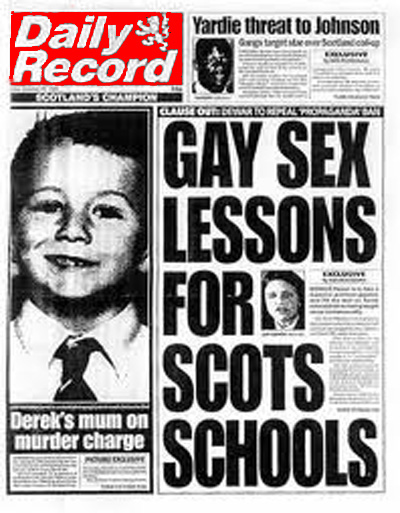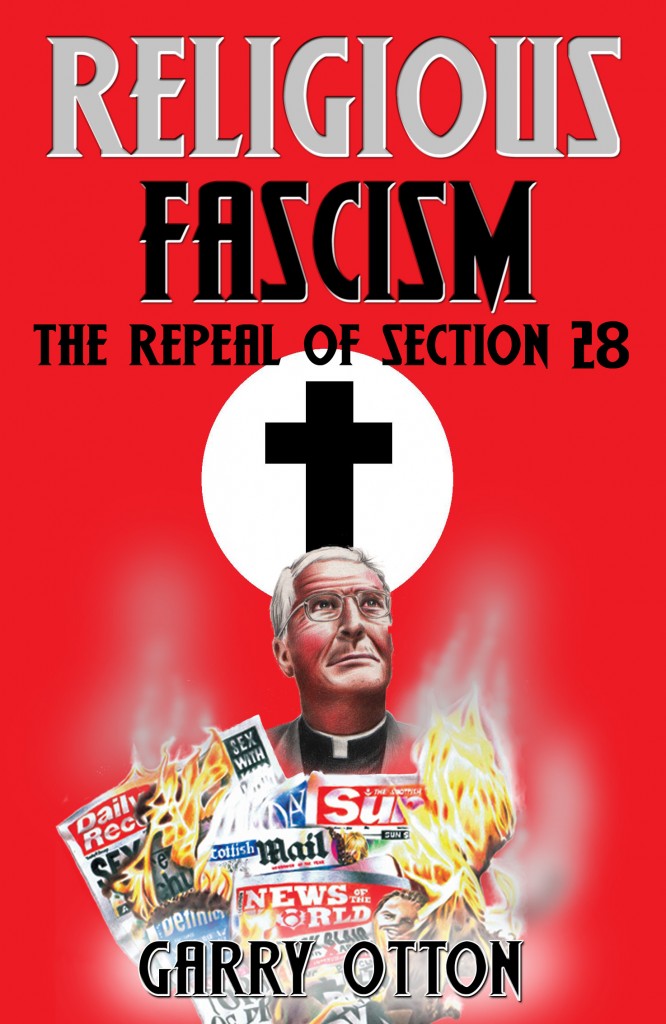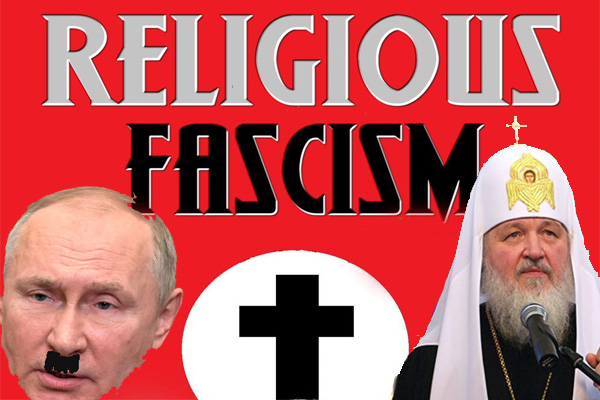When you see same-sex couples holding hands on the street, you are walking in a city that is comfortable with itself. But if you don’t, it is a warning. And if you fail to heed the warning, you can never be sure who will be next to live in fear.
My book Religious Fascism was about the repeal of anti-gay legislation Section 28 and was published in 2014. It was before Donald Trump and his particular kind of fascism gripped the U.S. The last chapter focused on some notable countries that were ostensibly permitting homophobia. Unsurprisingly, Russia was amongst them.
I share with you that final chapter…
As each day was marked by the passing of another old lady who made jam for church fêtes, or an elderly minister concerned for the sick in Africa, something cancerous had spread from the pulpits, across the chancels to the front rows: A new, smaller, hard-core, socially conservative progeny of the zealous, immigrants, individuals with mental health problems, the vulnerable, the mentally unstable, children indoctrinated in religious homes and schools and those saved by pastors from drugs, alcoholism or emotional breakdowns. The musty smell of prayer books had gone and in their place were eye-catching leaflets for evangelical Alpha courses, church ‘planting’ and international missions. Across the world, churches were filling their buckets with cash to oil the wheels of organisations ready to save the world from sexual degradation, permissiveness, and by default: homosexuality.
In 2013 a mob of 5,000 Christians led by priests of the Russian Orthodox Church in Tbilisi, Georgia targeted a group marking the International Day Against Homophobia (IDAHO) chanting, “trample them to death!” Police managed to evacuate most of those on the march onto municipal buses assembled in the centre of Tbilisi while protesters threw stones, beat on the windows of the buses screaming: “Drag them out and stomp on them to death.” The old women carried bouquets of stinging nettles while men waved Georgian flags and crosses. It was the year Turkey collected nul points in the Eurovision Song Contest, storming out of the contest at the last minute after taking umbrage at Finland’s entry which featured two girls kissing. The year when subway officials in Ankara asked metro passengers to “act in accordance with moral rules” after a heterosexual couple had been caught kissing on security cameras. A few hundred amorous protesters storming the station for a kiss-in were faced with riot police and pro-Islamists.
In Greece, having already gained 18 seats in the Greek parliament, fascist party Golden Dawn had their offices blessed by priests of the Greek Orthodox Church. Terence McNally’s play Corpus Christi, depicting Jesus and his disciples as gay and living in Texas evoked the ire of both Orthodox bishops and Golden Dawn members who, before seeing the play, staged an angry protest outside the theatre. The director and production cast of Corpus Christi were prosecuted and faced charges of ‘blasphemy’. The director’s parents were disturbed by calls telling them that their son’s body would be delivered to them in pieces. One of the bishops advised Golden Dawn if it changed its style to become more “mature”, they could become a “sweet hope” for desperate Greeks.
In Romania, seven young people were assaulted after attending an academic debate about the history of homosexuality and a year later, 50 fascists in Bucharest went on to halt the screening of American film The Kids Are Alright, assaulting and filming filmgoers chanting ‘death to homosexuals’ before singing the Romanian national anthem and waving religious icons.
In Russia, two-thirds still found homosexuality ‘morally unacceptable and worth condemning’ and, according to the Pew Research Center, only 16 per cent said homosexuality should be accepted. In a country with little or no sex education in schools, backed by Patriarch Kirill of the Russian Orthodox Church, the government introduced a new federal law – much like Section 28 – against the ‘propaganda of non-traditional sexual relations among minors’, just one of several anti-gay measures that were introduced in a new climate of fear. Conflating paedophilia with homosexuality, Russian President Vladimir Putin repeated what many religious campaigners said about Section 28, that the new law was only about protecting children. The law also banned representing “tradition” and “non-traditional” relationships as equally acceptable and made it an offence to say anything positive about being gay in public, even to tell a child there was nothing wrong with them being gay or being raised by parents who were gay.
Russian lawmakers allowed themselves to be taken-in by the discredited Regnerus study funded by a US Republican think-tank, the Heritage Foundation, which claimed gay parents pushed their children to suicide. An audit by an editorial board member of Social Science Research, the journal which published Christian Mark Regnerus’s $785,000 funded study, concluded that the study should have been disqualified during the peer-review process. He called it “bullshit” and accused Regnerus of pushing a political agenda. In Poland, France and Africa, the Regnerus study was repeatedly used to attack gays. Converting from Quakerism to Catholicism, US Republican Brian Brown of the National Organisation for Marriage who had argued that legalized same-sex marriage could lead to paedophilia testified before the Russian Duma in favour of anti-gay legislation citing the Regnerus study. Days after his presentation the Russian legislative body again cited the Regnerus study and introduced a bill to ban Russian children from being adopted by same-sex couples. They were soon debating new laws to take children away from gay parents altogether.
After finding a book in Ulyanovsk children’s library by Vera Timenchik called Families. Ours and Theirs about different family-related traditions and cultures across the world, prosecutors were called in to investigate its suitability. A spokesperson for the library was quick to reassure everyone the book had been removed.
Only weeks after a brutal murder of a 23-year-old gay man at a demonstration in Moscow to celebrate 20 years since homosexuality was decriminalised and to protest at the introduction of the new homophobic law, 30 were arrested after unfurling their rainbow flags. Several were attacked by Orthodox Christian thugs who sang hymns and crossed themselves to ward off evil. A law banning gay pride marches in Moscow for a whole century was passed before the European Court of Human Rights declared the ban illegal.
Two dozen masked men stormed a popular gay bar in Moscow and beat the patrons – mostly women – with fists and bottles. Some were seriously injured. On the streets, Pavel Samburov was arrested and fined 570 roubles and given 30 hours of detention for kissing his boyfriend in public. Konstantin Kostin, a member of the Holy Rus movement declared: “Gay people need medical treatment. It’s simply disgusting to look at them. Russia used to be a great superpower. Now look what’s become of us. Marriage is a sacred union between man and woman, and this lot want to defile the sanctitude of our country”.
In a more sinister development, using the Internet, numerous victims were lured by organised gangs across Russia with a promise of a date before they were made to strip naked, tortured, humiliated and forced to come out to family and friends whilst being filmed. Footage of the assaults was posted online. In one case a man was left blinded in one eye after a gang attacked him and in another found by Human Rights Watch a man had his clothes burnt after he was abducted and handcuffed. The gang then put a gun to his head and made him rape himself with a bottle. Most of the gang members were confident enough to be filmed, knowing they were able to act with impunity. Liz MacKean, an investigative journalist who travelled to Russia to make the documentary Hunted for Channel 4 said, “We filmed these groups with their knowledge, and what I found shocking afterwards was that only a few asked to have their faces disguised. They all believe they are doing the right thing”. Russian diplomats responded by saying that a similar film could have just as easily been made about people victimised because they had ginger hair.
In Uganda in 2010, after popular newspaper Rolling Stone ran a story on “100 PICTURES OF UGANDA’S TOP HOMOS” with their names and addresses and calls for the hanging of homosexuals, the efforts of Christian extremists began to bear fruit. Amongst the list of names was Kasha Nabagesera whose workshop at a hotel in Entebbe for LGBT activists was raided by the country’s Ethics Minister, a defrocked Catholic priest called Simon Lokodo. Ms Nabagesera was arrested. Lododo was reported saying: “I have closed this conference because it’s illegal. We do not accept homosexuality in Uganda. So go back home”. Another listed homosexual was David Kato, a gay human rights activist, who within three months of the article being printed was found bludgeoned to death. An Anglican priest used his funeral to condemn homosexuality.
Uganda’s Rolling Stone stirred hatred with stories under headlines not dissimilar to claims that laced the campaign to ‘Keep the Clause’, like: “WE SHALL RECRUIT 1,000,000 KIDS BY 2012,” and “PARENTS NOW FACE HEARTBREAKS AS HOMOS RAID SCHOOLS”. Evangelical Christian lawmakers had to be held back from putting into place new laws that would put all homosexuals to death. When President Museveni signed an Anti-Homosexuality Bill into law, the act sentenced anyone suspected of same-sex relations to life in prison. The law punished anyone associated with ‘promoting’ LGBT activities, be they health workers conducting HIV tests or offering advice. The punishment extended to anyone who failed to report violations of the Act to the authorities within 24 hours of the event.
The Anti-Homosexuality bill was introduced not long after a big seminar in Kampala called “Exposing the Truth behind Homosexuality and the Homosexual Agenda”. It featured two rabidly homophobic speakers, Scott Lively, head of Abiding Truth Ministries in Massachusetts and author of the Pink Swastika, which claimed homosexuals invented Nazism and were instrumental in the Holocaust, and Dan Schmierer of the ex-gay group Exodus International. At the seminar, Lively told the audience that a powerful global gay movement had now set its sights on Africa and that the “gay agenda” was unleashing epidemics of divorce, child abuse, and HIV/AIDS wherever it gained a foothold. He warned that by permitting homosexuality, “you can’t stop someone from molesting children or stop them from having sex with animals”.
The Rwandan genocide was also blamed on homosexuals. Influential evangelist Rick Warren, head of California’s Saddleback megachurch had already travelled to Rwanda, Kenya and Uganda declaring along the way that “homosexuality is not a natural way of life and thus not a human right”. Scott Lively met with Ugandan government ministers and David Bahati who would go on to draft the Anti-Homosexuality Bill there. Bahati was connected to the secretive Christian fundamentalist organisation behind National Prayer Breakfasts, the Fellowship, which pours millions into student leadership programmes that places government and media with disciples of Jesus. According to Jeff Sharlet, a contributing editor for Harper’s, Joe Pitts, a Republican congressman has diverted millions in US aid to Uganda from sex education programmes to abstinence programmes and evangelical revivals that included condom burnings. Africans were being duped as their traditions of not only homosexuality but the extended family or ubuntu was being smothered by western culture wars and a nuclear family that had more in common with The Waltons from rural Virginia than a family living in the African bush.
In Nigeria, the president went on to ban same-sex marriages, gay groups and any public sign of affection between people of the same sex with penalties of up to 14 years imprisonment.
As Scott Lively joined other Christians in Russia, Latvia, Macedonia, Romania, Croatia and other countries, the Center for Constitutional Rights, under laws permitting foreigners to sue American citizens who violate international law, helped the Sexual Minorities Uganda (SMUG) file a suit in a US court against Scott Lively for denying Ugandan’s their human rights.
With the modernisation of Christian missions and crusades, Pat Robertson’s Christian Broadcasting Network and the evangelical Trinity Broadcasting Network were both seen across sub-Saharan Africa with the addition of many other Christian-right radio networks. Rev. Dr. Kapya Kaoma, author of the investigative report Globalizing the Culture Wars: U.S. Conservatives, African Churches, & Homophobia wrote: “Evangelical churches and groups provide scholarships for African clerics to receive conservative theological training at U.S. institutions. They sponsor orphanages, Bible schools, universities, and social-welfare projects”.
In France, the shouts and screams of thousands of mostly religious protesters coached in from the countryside shook the tables of Parisian cafés from Montparnass to Montpellier during President Hollande’s attempt to introduce marriage equality. Starting out as grass-roots organisations organised by the Catholic Church, protesters marched with right-wing politicians including a candidate for the far-right Front National to protest. Skinheads attacked a gay bar in Lille and masked armed men smashed another bar in Bordeaux. Raphaël Leclerc, a gay cabaret dancer was beaten unconscious in Nice, Muslims were filmed kicking and punching women protesters in Paris and Wilfred de Bruijn, a young librarian who was caught holding his boyfriend’s hand sustained injuries so severe they went viral on the Internet. Despite protestations from campaigners that their campaign wasn’t religiously motivated; Le Monde examined the 37 associations behind Manif Pour Tous, an anti-gay-marriage organisation led by comedienne Frigide Barjot, (literally, Frigid Bonkers), a self-styled “press officer for Jesus”. 22 were described as ‘empty vessels’; the rest were all religious. She warned: “Hollande wants blood, and he will get it”.
Two members of France’s socialist party Sylviane Bulteau and Hugues Fourage received letters threatening to kidnap their loved ones. Claude Bartolone, the head of France’s National Assembly, was sent an envelope filled with gun powder and a letter signed by a radical right-wing group, saying: “Allowing marriage for all would be the same as destroying all marriage. Our methods are more radical and direct than demonstrations. You wanted war, you’ve got it … If you were to carry on regardless; your political family will have to suffer physically.”
Christine Boutin, president of the Christian-Democrat party and former minister under Nicolas Sarkozy hinted that violence would be justified if François Hollande did not ditch same sex marriage. Despite one Green MP having her tyres slashed in front of her house, President Hollande stuck to his election promise and brought in the legislation. Days after he signed the bill into law he ‘got blood’ when a member of extreme far-right group, Printemps Français, (French Spring), 78-year-old Dominique Venner, walked into the cathedral of Notre Dame and shot himself through the mouth. He left a note warning: “New spectacular and symbolic actions are needed to wake up the sleep walkers… We are entering a time when acts must follow words.”
Soon, it was Frigide Barjot’s turn to seek police protection after receiving a handkerchief soaked in what looked like blood. She suspected, not gay militants, but Printemps Français, which had gained notoriety in her demos and threatened to target “the government and all its appendices, the collaborating political parties and lobbies where the ideological programmes are developed and the organs which spread it.” Barjot insisted she was not anti-gay and thought the group had turned on her after she called Venner “deranged” and “un-Catholic”. John Lichfield in the Independent reported her saying: “I entered this fight because I knew that, otherwise, the protests would be dominated by people like them: the far right and the Catholic extremists.” In many respects she was right. It was an issue the far-right and religious extremists were successfully hijacking while at the same time inciting new, shrill, liberal and atheistic voices into counter attacks. Somewhere between the conflicts of these polar opposites was the increasingly marginalised voice of a moderate secularism, chastised or ignored.
Before May was out, the first same-sex couple in France, Vincent Aubin and Bruno Boileau were married. The ceremony was performed by Socialist mayor, Hélène Mandroux despite numerous threats, including a telephone call from a man telling her to “get bodyguards.” Nevertheless, within weeks, 18-year-old gay student, Clément Méric was pronounced brain-dead after an attack by a group of far-right skinheads from the group JNR Jeune Nationaliste Revolutionnaire.
As Hollande’s socialist party fell behind in popularity, the Front National surged forward. Catholic and some Muslim groups opposed to same-sex marriage were back on the streets again in a Day of Anger in 2014 which attracted 17,000 from far-right and fascist movements. Journalists were chased away with chants of “Nazi state, collaborationist media”. Amongst other chants picked up by the media were “Juif, la France n’est pas pour toi” (Jew, France is not for you), “Hollande or the CRIF (Jewish representative group), who is leading who?” and “Europe gay criminal Zionist”. Ivan Rioufol, journalist for Le Figaro, wrote: “The Day of Anger has revealed the hideous face of fascist France”. Hollande backed down from introducing any further equality legislation.
By 2014, Russian news agency TASS reported a French delegation of religionists, including Manif Pour Tous, the Catholic Bishop of Bayonne and Oloron Marc Aillet, representatives of Strasbourg-based European centre For Law and Justice and the anti-abortion and euthanasia Jerome Lejeune Foundation meeting religious leaders and delivering speeches in both houses of the Russian Parliament. The envoy of the Moscow Patriarchate at the Council of Europe Hegumen Filipp said: “All this is organized so that Frenchmen will be able to find partners in Russia for co-operation in the protection of traditional values”.
In the UK, by 2010, the BNP’s Nick Griffin, an Anglican who believed “nations are ordained by God”, was already enjoying the exposure of an hour-long programme on Christian TV channel, Revelation. When he appeared on Sky News – facing accusations of obtaining lists of email addresses of Christians to win their support in elections – he sported a cross in his lapel. But he was yesterday’s man. Nigel Farage – the man who named Vladimir Putin as the world leader he most admires – and the UKip was soon the more respectable face for the Christian-right.
A new bullish Christian supremacy was being manufactured in Scottish churches. It concealed a growing frustration against Islam and polarised views both for and against religion. In such a climate, extremism was thriving. With millions in grants ploughed into ‘interfaith’ projects, no efforts were being made to engage faith with the majority without religion who challenged by a concerted effort by government to defend and maintain religious privileges.
Scotland was proving ripe for unregulated proselytising. The New Life Christian Fellowship in Broxburn advised parents of children of pre-school age on its website: “Little Children’s Church is NOT simply a crèche where little ones are looked after.” It’s a place where children “learn about God, Jesus and the Holy Spirit.” The church boasted a Child Protection Policy approved by the Churches Child Protection Advisory Service. The church deplored “unbelief” which they claimed was a hindrance to supernatural healing and gave examples such as Lorna, a woman eight years into a diagnosis of multiple sclerosis, who claimed she had thrown her medication into the bin a day after ‘healing’ before walking around in high heels.
Kairos Church in Peterhead conducted Alpha courses, held an inevitable crèche and a ‘hands-on-Bible’ curriculum for children from five to 11 whilst adults attended services speaking in “other tongues”.
The Destiny Church in Glasgow boasted ‘cells’ or ‘growth’ groups and also welcomed under-fives to “listen to stories.” Destiny paid over £2m for a former Clydesdale Bank building in Townhead before opening a charity superstore in the former Dobbies Garden Centre outside Paisley.
The Scripture Union already had access to children in schools. They claimed on their website: “We have a team of 30 highly creative regional and associate staff who work in primary and secondary schools across Scotland.” They proclaimed: “Jesus Christ as Lord and God… as Victor over Satan and all his forces.”
Then there were ‘Challenger’ buses run by People with a Mission Ministries, parking outside primary schools. At least two of the buses contained computer stations, evangelistic DVD’s, and presentations. The upstairs area contained a coffee lounge area with a 46” flat screen TV with surround-sound and mini-cinema in the front half of the buses. Their website boasted: “In subsequent Friday visits the average number of youth attending the bus was around 12 with two or three making a commitment to Christianity.” The Ministries sold and endorsed Answers, a monthly periodical from the infamous Answers in Genesis; a well-known anti-science and young Earth creationism ministry which held regular conferences in Scotland.
Not every cleric, like the three that are made to take their place on every education committee in Scotland by law, received such unconditional acceptance. In May 2013, in Raploch, Stirling, Pastor Soloman Makhathoela was in court for calling his neighbour Catherine Kerr “white scum” after learning the mum-of-two wasn’t wed. He was reported in the Scottish Sun telling her that in his country her kids “would be shot and hung” before turning on her fiancé, Alan Brown, to tell him “it was a fucking disgrace they had kids out of wedlock.”
In the same week, Michael Voris, a Church Militant TV presenter, was invited to talk to 150 hard-core Catholics at Carfin Grotto outside Motherwell. I spoke to a young man in his early twenties who had been brought along by the leader of his church peer group. He had been shown Voris on the internet. Passionately defensive of Catholicism, he said it had rescued him from depression, suicide and pornography. He told me Voris “inspired him”.
In typical Bible-belt fashion, Voris is in the Ted Haggard tradition; an unmarried Catholic apologist from Texas in a suit and tie, toupee and tan. He dismisses global warming as “pseudoscience and hyper-sensationalism” and brands many of the Catholic clerical hierarchy, “namby-pamby”. He fears the Catholic Church is “falling apart” and wants “muscular Catholicism that isn’t afraid to encourage battle and sacrifice.” He told his audience: “We have such an intense relationship for Him we would die for Him.” And that pretty much confirmed his somewhat desperate response to the collapse of the Catholic Church. “The job of the Church is not to make soup kitchens,” he scoffed, “but to make saints.” Voris reminded the faithful: “The Catholic Church isn’t about feelings.”
Perhaps he’s right and the time for sentimentality over religion is over.
What has happened in Russia should be a lesson to us all.


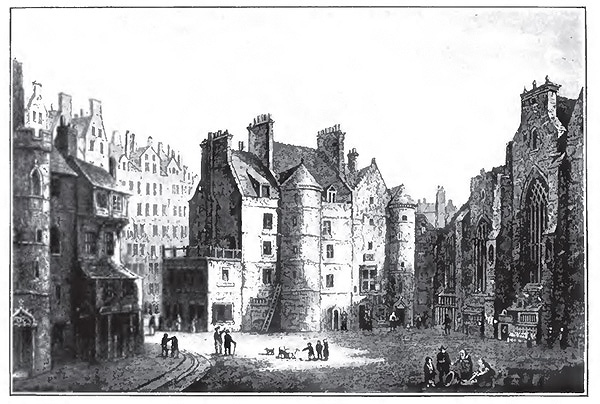
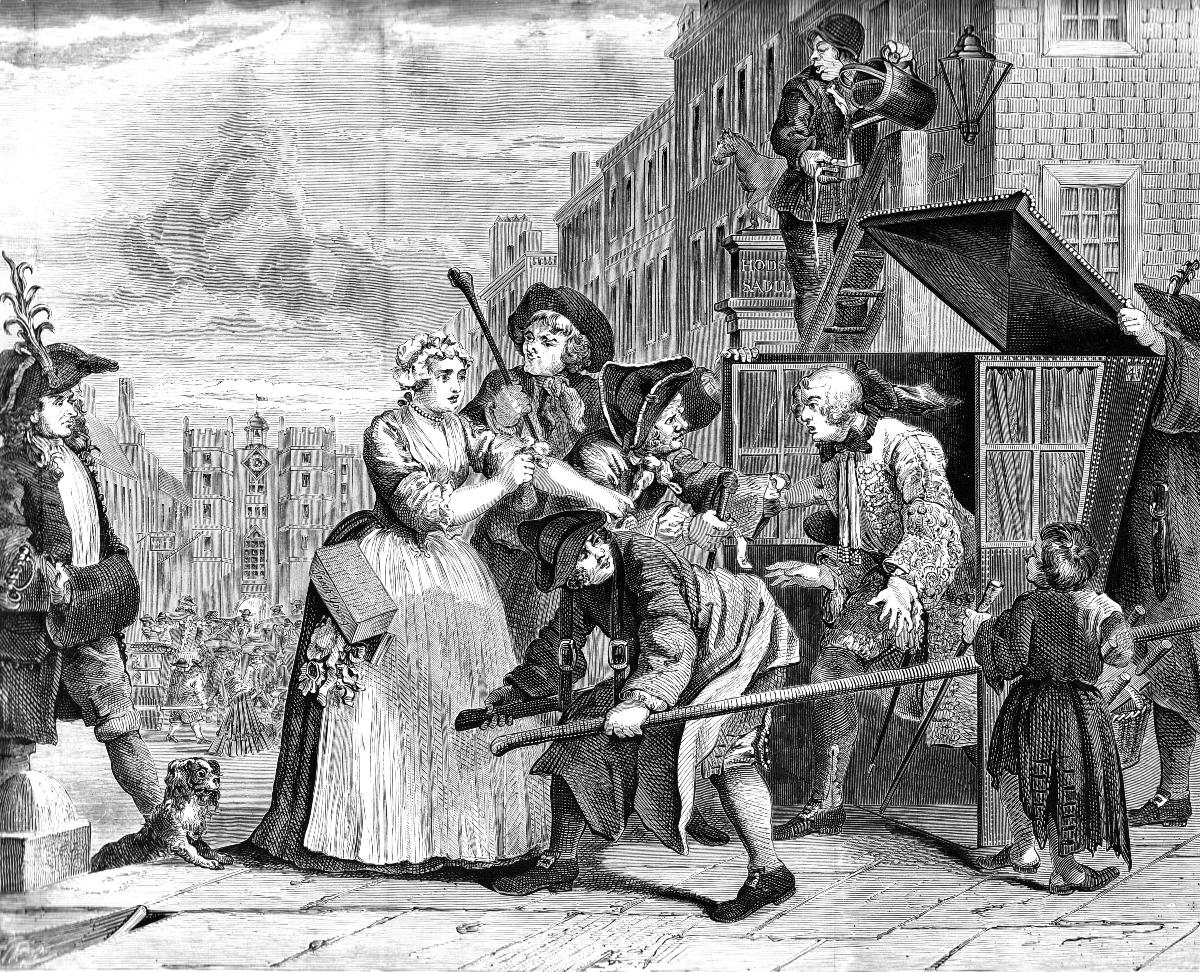
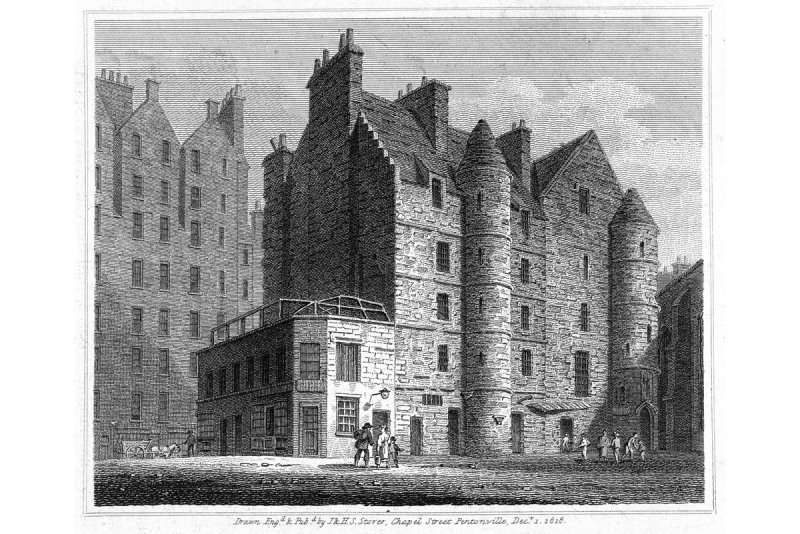
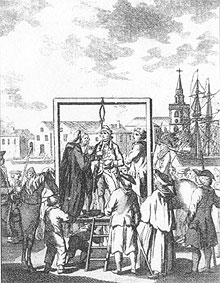
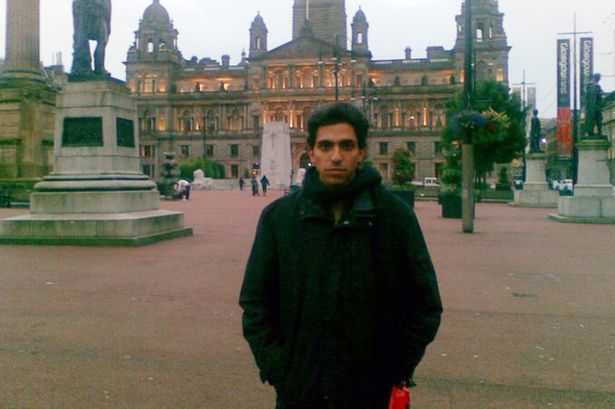






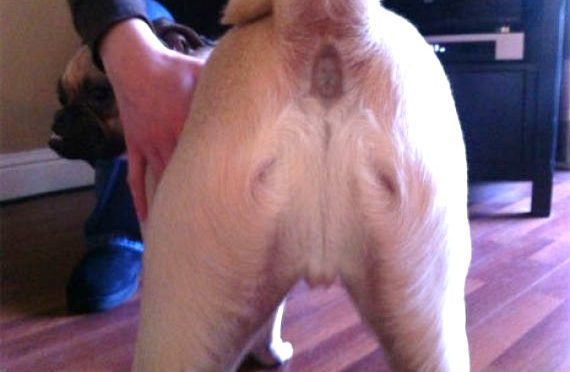

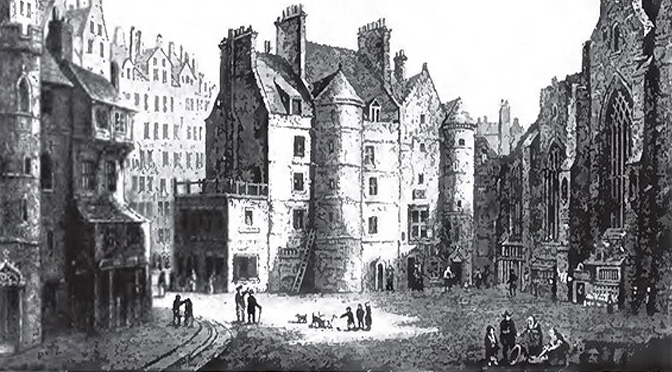
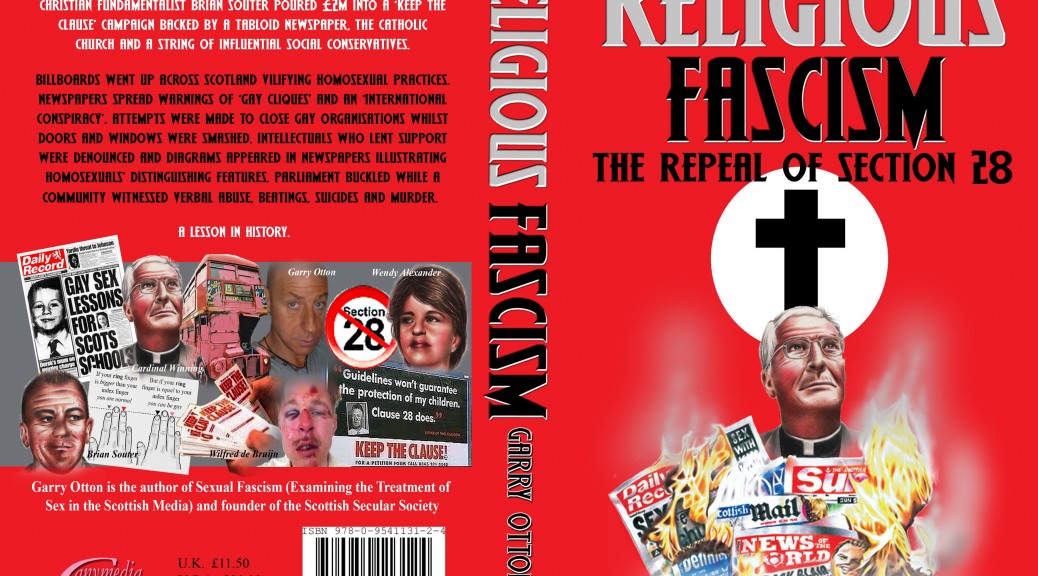
![Pageflex Persona [document: PRS0000035_00047]](http://garryotton.com/wp-content/uploads/2014/04/ReligFascFrontandBackcover2.jpg)

